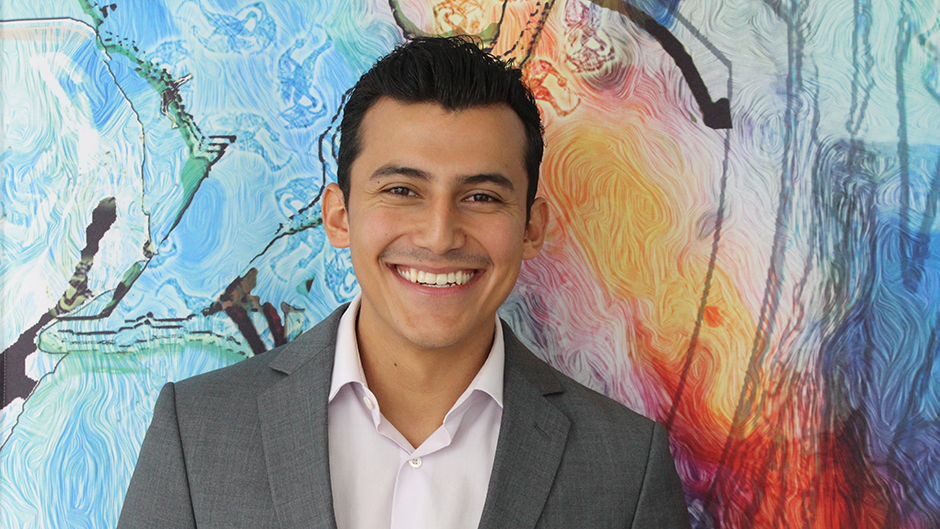Vaca discovered DECA, a non-for-profit student organization that teaches leaderships and entrepreneur skills, at Coral Glades High School in Broward County.
“I knew the minute I started doing DECA presentations that I wanted to do something in business or law,” says Vaca. “It is similar to the moot court concept and I won first place twice in the State of Florida. Winning in the advertising section is what made me want to go to law school – because of the presentation aspect.”
Life would have likely been much different if his family had stayed in Ecuador, “I probably would have just been a businessman; the opportunities are so different there,” he says.
With tumultuous times in Ecuador, the family fled to the United States.
His parents arrived in Coral Springs without formal educations. They started out like many newly arrived immigrants – working for cleaning service companies. Today, they own a successful janitorial supply company.
Vaca attended Florida International University, double majoring in political science and psychology, before coming to Miami Law, his first choice because of the concentration on international opportunities.
“I think Miami is the only city in the U.S. where the Hispanic community has thrived on all levels,” Vaca says. “It is the one place where Hispanic aren’t just seen as gardeners or housekeepers. They are in politics, in law, in medicine. And Miami Law has unique opportunities in international law and international business. That is why I am here and why I am in the International Arbitration LL.M. Program. It is the direction every major company is headed – resolving their disputes through arbitration. No one seems to favor going to court anymore.”
Besides pursuing a J.D./LL.M. in International Arbitration, Vaca is headed to Chile this week for the UBA-Rosario Competencia Internaciobal de Arbitraje Moot Court, an international commercial arbitration moot court competition. He will be joined by fellow third-year students Daniel Hentschel, Kevin Neslage and Stephanie Roy, and Professor Sandra Friedrich, Director of the White & Case International Arbitration LL.M. Program, and Professor Paula Arias, Director of the International Moot Court Program.
Miami Law is one of only two U.S. schools to compete in the UBA-Rosario Arbitration Moot, which is conducted completely in Spanish. The majority of the more than forty participating teams are from South America. The annual event, organized by the University of Buenos Aires (Argentina) and the University of Rosario (Colombia), aims to promote the study of international commercial arbitration, as large multi-national corporations and the international business community are turning more often towards using conflict resolution to resolve their cross-border disputes.
“The moot has been the most challenging part of law school so far. The coach and director of the program, Paula Arias, has really pushed the team to be the best we can be,” the third-year says. “It has also been the most practical in teaching me how to be a lawyer. My moot legal brief concerns a fictional international commercial arbitration contract dispute over a consulting contract for mining materials.”
Writing and arguing in Spanish isn’t quite as easy as it would seem. “Yes, I think in Spanish and my first written language was Spanish but my first spoken language was English and it has been the language of my education since the age of 13,” he says. “I have been perfecting my Spanish, working with the team, and taking it from a conversational Spanish to a professional level.”
Vaca initially got involved in the Spanish-only moot to work on his Spanish; he got hooked after taking a couple of the International Arbitration LL.M. curriculum offerings: Professor Jan Paulsson’s Basic Concepts in International Arbitration course and Professor Marike Paulsson’s Treaty Interpretation course.
The White & Case International Arbitration LL.M. Program features an unparalleled curriculum of specialized theoretical and practical courses, taught by an internationally-renowned faculty, comprising world-class arbitration practitioners, who help students start or advance their careers in international arbitration.
“Of course I hope to return from the moot with something for the school, as a team and for the program,” he says. “I go, not only representing the team and the school, but also the International Arbitration Program and a student of the Paulssons. Those are some big shoes to fill.”

